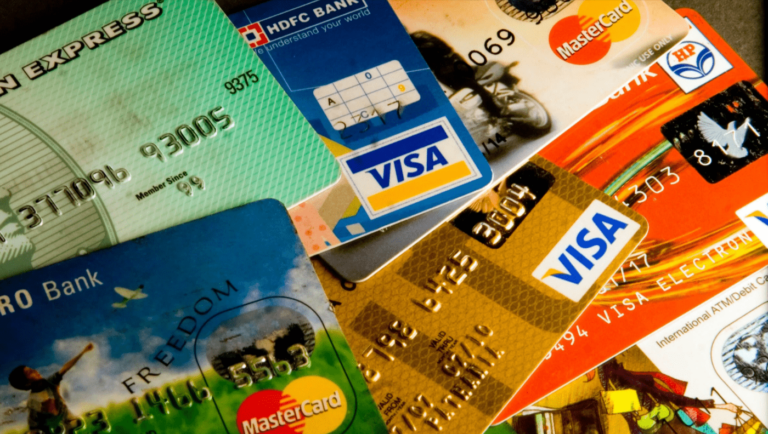The Dark Web is a segment of the internet that is not indexed by traditional search engines, making it a hidden realm that requires specific software to access. It operates on an encrypted network, primarily using the Tor (The Onion Router) protocol, which anonymises users by routing their internet traffic through a series of volunteer-operated servers. This anonymity is a double-edged sword; while it provides a platform for privacy and free speech, it also harbours illegal activities and dangerous content.
The Dark Web is often conflated with the Deep Web, which encompasses all parts of the internet not indexed by search engines, including databases and private corporate sites. However, the Dark Web specifically refers to those sites that require special software to access and are often associated with illicit activities. Within this shadowy corner of the internet, users can find a variety of content ranging from forums discussing political dissent to marketplaces selling illegal drugs and weapons.
The allure of the Dark Web lies in its promise of anonymity, which attracts individuals seeking to evade surveillance or censorship. For instance, whistleblowers and activists in oppressive regimes may use the Dark Web to communicate securely and share information without fear of retribution. However, this same anonymity can also facilitate criminal behaviour, leading to a complex landscape where ethical considerations are often blurred.
Understanding the dual nature of the Dark Web is crucial for anyone considering venturing into this hidden domain.
Summary
- The Dark Web is a hidden part of the internet that requires special software to access and is often associated with illegal activities.
- Protect your identity and personal information by using strong, unique passwords and avoiding sharing sensitive details online.
- Use encrypted communication tools such as Signal or WhatsApp to ensure your messages and calls are secure from eavesdropping.
- Be cautious of scams and fraud on the Dark Web, and avoid sharing financial information or engaging in suspicious transactions.
- Safely access and use cryptocurrencies by using reputable exchanges and wallets, and being aware of potential risks such as hacking and fraud.
- Choose the right VPN and Tor browser to protect your online privacy and access the Dark Web securely.
- Recognise and avoid illegal activities on the Dark Web, and report any suspicious or criminal behaviour to the relevant authorities.
- If you encounter suspicious activity or need help, seek assistance from law enforcement or cyber security professionals.
Protecting Your Identity and Personal Information
When navigating the Dark Web, safeguarding your identity and personal information is paramount. The first step in this protective measure is to avoid using any personal identifiers, such as your real name, email address, or any other information that could be traced back to you. Instead, consider creating a new identity specifically for your activities on the Dark Web.
This could involve using pseudonyms and disposable email accounts that do not link back to your real-life persona. The use of virtual private networks (VPNs) can further enhance your anonymity by masking your IP address and encrypting your internet traffic. Moreover, it is essential to be cautious about the information you share in forums or chat rooms.
Even seemingly innocuous details can be pieced together to form a profile that could lead back to your true identity. For example, sharing your location or discussing personal interests can inadvertently provide clues about who you are. Additionally, employing strong passwords and two-factor authentication on any accounts you create can add an extra layer of security.
The goal is to create a digital persona that is entirely separate from your real life, thereby minimising the risk of exposure.
Using Encrypted Communication

In an environment where privacy is paramount, utilising encrypted communication tools is essential for maintaining confidentiality on the Dark Web. Standard messaging applications often lack robust security features, making them vulnerable to interception by malicious actors or law enforcement agencies. Instead, opt for platforms that offer end-to-end encryption, ensuring that only the intended recipient can read the messages.
Applications like Signal or Wickr are popular choices among users who prioritise privacy, as they provide strong encryption protocols that protect against eavesdropping. In addition to secure messaging apps, consider using encrypted email services such as ProtonMail or Tutanota. These services not only encrypt your emails but also do not require personal information for account creation, further enhancing your anonymity.
When communicating on the Dark Web, it is also wise to avoid discussing sensitive topics or sharing personal information, even in encrypted formats. The principle of “least privilege” applies here; share only what is necessary and remain vigilant about potential vulnerabilities in your communication methods.
Avoiding Scams and Fraud
| Types of Scams | Preventive Measures |
|---|---|
| Phishing | Be cautious of unsolicited emails and never click on suspicious links |
| Identity Theft | Secure personal information and use strong passwords |
| Investment Fraud | Research before investing and be wary of high returns with low risk |
| Online Shopping Scams | Shop from reputable websites and use secure payment methods |
The Dark Web is rife with scams and fraudulent schemes that prey on unsuspecting users. One common tactic involves fake marketplaces that lure individuals with promises of illicit goods at unbeatable prices. Once payment is made—often in cryptocurrencies like Bitcoin—the scammer disappears, leaving the victim empty-handed.
To avoid falling victim to such scams, it is crucial to conduct thorough research before engaging with any marketplace or vendor. Look for reviews and feedback from other users to gauge the legitimacy of a seller before making any transactions. Additionally, be wary of offers that seem too good to be true; if a deal appears excessively advantageous, it likely warrants suspicion.
Scammers often employ high-pressure tactics to rush victims into making decisions without adequate consideration. Take your time when navigating these marketplaces and always verify the credibility of sellers through multiple sources. Engaging with established vendors who have a history of positive feedback can significantly reduce the risk of encountering fraud.
Safely Accessing and Using Cryptocurrencies
Cryptocurrencies play a pivotal role in transactions on the Dark Web due to their perceived anonymity and decentralised nature. However, using cryptocurrencies safely requires a solid understanding of how they work and the potential risks involved. When engaging in transactions, it is advisable to use wallets that prioritise security and privacy features.
Hardware wallets, for instance, store your cryptocurrencies offline, making them less susceptible to hacking attempts compared to online wallets. Moreover, when purchasing cryptocurrencies, consider using decentralised exchanges or peer-to-peer platforms that do not require extensive personal information for account creation. This approach helps maintain your anonymity while allowing you to acquire digital currencies for transactions on the Dark Web.
It is also prudent to mix your coins through services known as tumblers or mixers, which obfuscate transaction histories and make it more challenging for third parties to trace your activities back to you.
Choosing the Right VPN and Tor Browser

Selecting an appropriate VPN (Virtual Private Network) and Tor browser is critical for ensuring a secure experience on the Dark Web. A reliable VPN encrypts your internet connection and masks your IP address, providing an additional layer of anonymity when accessing Tor. When choosing a VPN provider, look for one that has a strict no-logs policy, meaning they do not store any data about your online activities.
This feature is vital for maintaining privacy; if a VPN keeps logs, they could potentially be accessed by authorities or hackers. The Tor browser itself is designed specifically for anonymous browsing but should be used in conjunction with a VPN for optimal security. When using Tor, it is essential to avoid logging into accounts associated with your real identity or accessing personal email accounts.
This practice helps prevent any potential leaks of information that could compromise your anonymity. Additionally, always ensure that you are using the latest version of the Tor browser to benefit from security updates and patches that protect against vulnerabilities.
Recognising and Avoiding Illegal Activities
While the Dark Web offers a platform for free expression and privacy, it is also home to numerous illegal activities that can have serious legal repercussions for participants. Recognising these activities is crucial for anyone navigating this space; engaging in or facilitating illegal transactions can lead to criminal charges and significant penalties. Common illegal activities include drug trafficking, weapons sales, human trafficking, and the distribution of stolen data or hacking services.
To avoid inadvertently participating in illegal activities, it is essential to remain informed about what constitutes unlawful behaviour on the Dark Web. Familiarise yourself with local laws regarding online activities and understand the potential consequences of engaging with certain types of content or services. If you encounter forums or marketplaces promoting illegal goods or services, it is best to steer clear and report them if possible.
Maintaining a clear ethical stance while exploring the Dark Web can help mitigate risks associated with its darker aspects.
Reporting Suspicious Activity and Seeking Help
If you encounter suspicious activity while navigating the Dark Web—be it scams, illegal content, or threatening behaviour—reporting it can contribute to a safer online environment for all users. Many law enforcement agencies have dedicated units for monitoring illegal activities on the Dark Web and encourage individuals to report any concerning findings anonymously. Providing detailed information about the nature of the activity can assist authorities in their investigations.
In addition to reporting suspicious behaviour, seeking help from online communities focused on privacy and security can provide valuable insights and support. Many forums exist where users share experiences and advice on navigating the complexities of the Dark Web safely. Engaging with these communities can enhance your understanding of best practices while also offering a sense of camaraderie among those who value privacy in an increasingly surveilled digital landscape.
FAQs
What is the Dark Web?
The Dark Web is a part of the internet that is not indexed by search engines and requires special software, such as Tor, to access. It is often associated with illegal activities and black market transactions.
Is it illegal to access the Dark Web?
Accessing the Dark Web itself is not illegal, but it is important to be aware that illegal activities, such as buying and selling drugs or stolen goods, are prevalent on the Dark Web.
How can I stay safe on the Dark Web?
To stay safe on the Dark Web, it is important to use a secure and anonymous browser, such as Tor, and to avoid clicking on any suspicious links or downloading unknown files. It is also advisable to use a VPN for an extra layer of security.
What are the risks of using the Dark Web?
The Dark Web is known for being a haven for illegal activities, including the sale of drugs, weapons, and stolen personal information. There is also a risk of encountering scams, malware, and other cyber threats.
Can I be tracked on the Dark Web?
While using Tor or other anonymous browsers can provide a level of anonymity, it is still possible for users to be tracked or identified, especially if they engage in illegal activities or make mistakes that compromise their anonymity.












+ There are no comments
Add yours